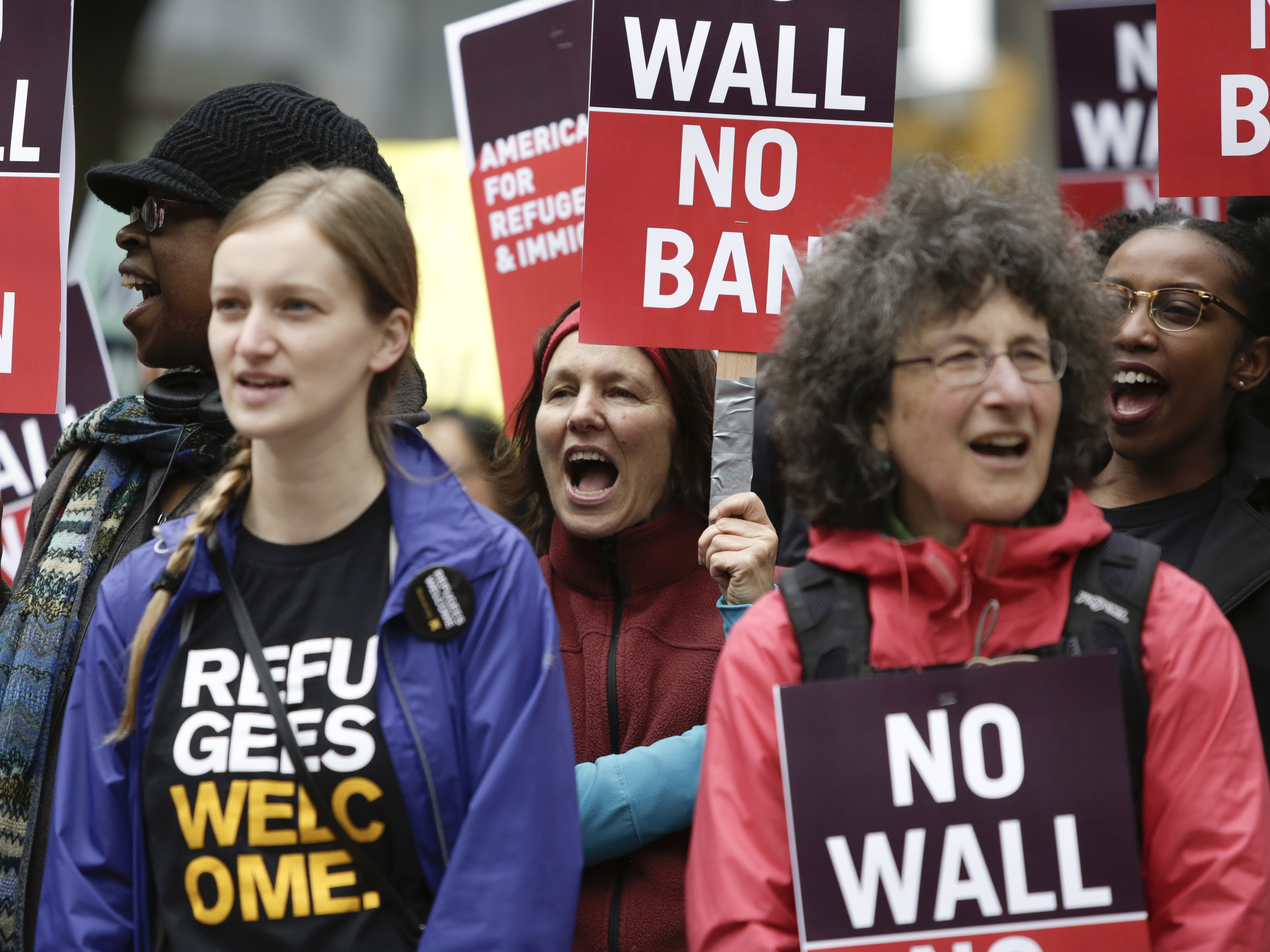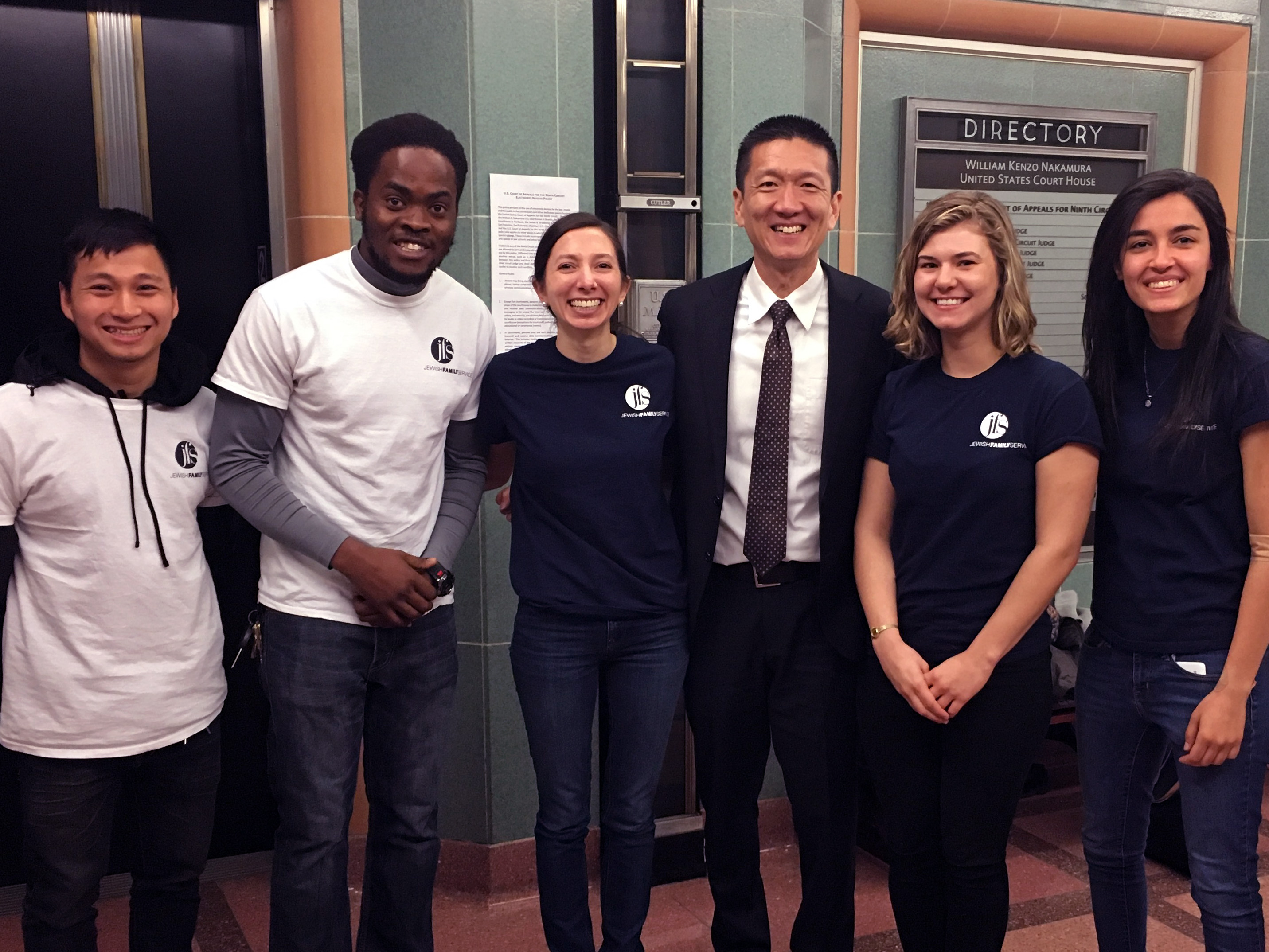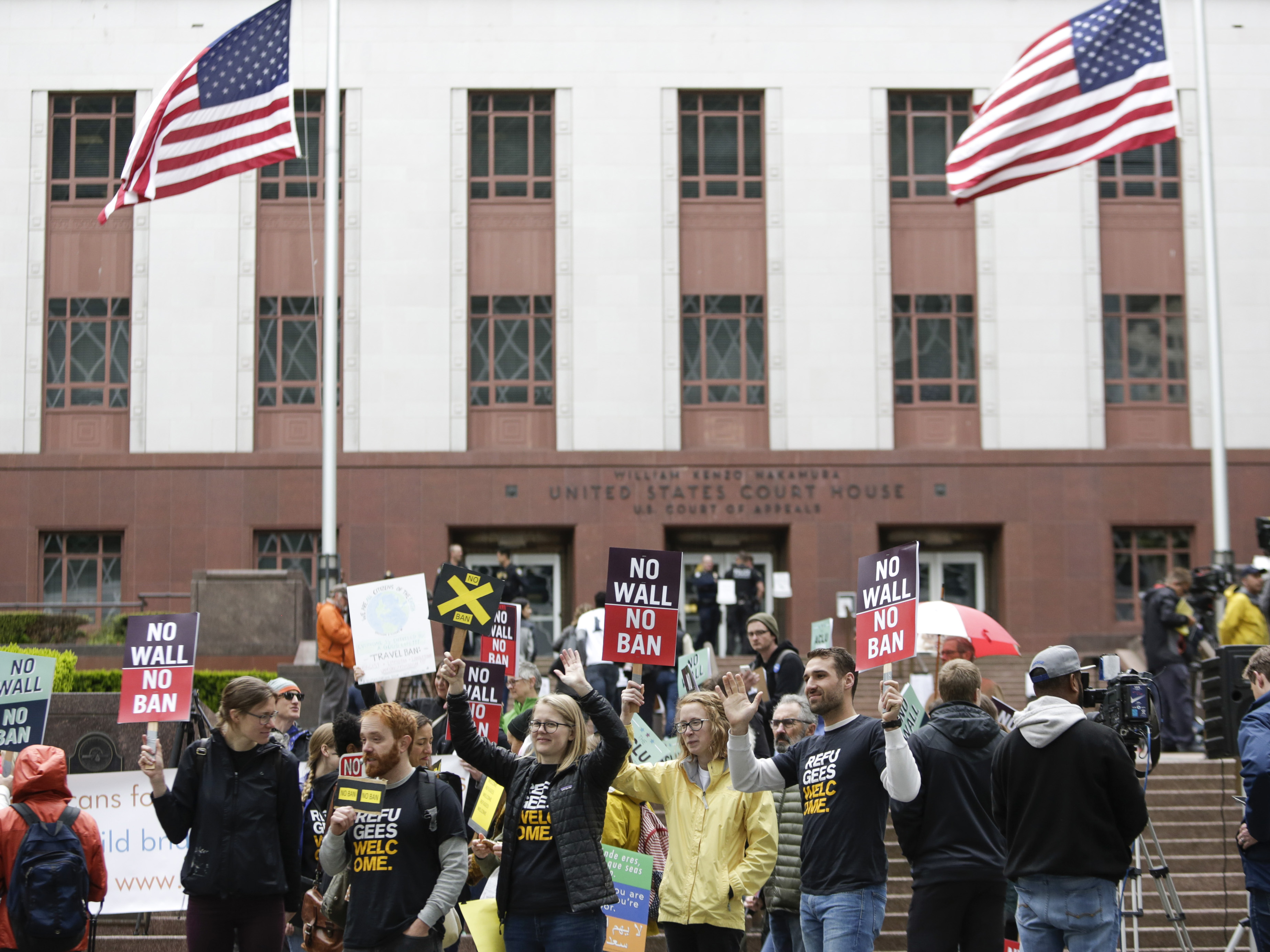Trump’s Muslim Ban Meets Judicial Test in 9th Circuit Hearing
By Rachel Nusbaum, HIAS.org
May 16, 2017
A three-judge panel in Seattle is considering whether to maintain the stay halting President Trump’s refugee and Muslim ban.
The federal appeals court heard arguments Monday on the constitutionality of the ban, with attorney Neal Katyal arguing for the State of Hawaii and Solicitor General Jeffrey Wall representing the Trump administration.
Cordelia Revells, Resettlement Programs Manager at Jewish Family Service of Seattle, HIAS’ resettlement partner in Washington state, was in the courtroom when the hearing took place. She was joined by several of her colleagues, who came out to show their support for refugees.
“JFS Seattle was at the Ninth Circuit in solidarity with refugees—with our current and future clients, friends, and neighbors,” Revells said. “We are grateful for the legal system, for its pursuit of justice without bias and for upholding the democratic principles of our country.”
Inside, Katyal argued that “context matters” in determining the legality of the order. One of the questions judges have asked at several points in this case is whether to include public statements Trump made during the campaign indicating he wanted to ban immigration by Muslims.
Courts generally give the president a significant amount of deference when it comes to matters of immigration and national security, and the Supreme Court has declined in the past to guess at the true intentions behind an order so long as it is valid ‘on its face’.
However, Katyal told the court, when it comes to this particular order “you don’t have to be Sigmund Freud,” to find evidence of unconstitutional bias on the basis of religion. He argued that there are public statements, made both before and after the election, which indicate the President’s intent to exclude Muslims from the U.S. without requiring the courts to evaluate the president’s innermost thoughts and motivations.
The courts should simply ask “what would an objective observer think of these statements,” Katyal argued. The President has described the current order as a “watered-down version of the first one,” and his campaign pledge (which remained on his website until recently) to enact “a total and complete shutdown of Muslims entering the United States,” which would clearly influence a neutral observer's opinion as to whether the executive order is an unconstitutional disfavoring of a specific religion.
Katyal urged the court to maintain the injunction currently blocking implementation of Trump’s refugee and Muslim ban.
Katyal: We ask that the injunction against this unconstitutional and unamerican executive order be affirmed.
— Brian Goldman (@briangoldman) May 15, 2017
One of the most dramatic moments in the hearing came when Judge Paez asked Wall about a brief filed in support of the plaintiffs by the Korematsu Center.
“The Korematsu Center has a special interest in addressing government action targeted at classes of persons based on race, nationality, or religion,” their brief notes. “Drawing on its experience and expertise, the Korematsu Center seeks to ensure that courts understand the historical—and, at times, profoundly unjust—underpinnings of arguments asserted to support the exercise of such unchecked executive power.”
In the case of Korematsu v. U.S., the Supreme Court controversially upheld Executive Order 9066, creating internment camps for Japanese-Americans during World War II. That decision cited the need to protect the country from espionage as a compelling reason to suspend the rights of U.S. citizens of Japanese ancestry. That decision is now remembered as one of the great failures of the Supreme Court.
Judge Paez pressed Wall on whether the Korematsu order might survive the deferential standard the government was asking the court to apply in the current case. Wall said that it wouldn’t, but Judge Paez seemed unconvinced.
“Why not?” he pressed. “Facially legitimate. That’s all you say.”
Wall seemed unable to allay his concerns on that score.
“There was no reference to the Japanese in that executive order. But look what happened,” Paez said.
Paez: Would Korematsu pass muster under arguments you're making today? Wall: No. Paez: Why not, that was also facially neutral
— Zoe Tillman (@ZoeTillman) May 15, 2017
As the Korematsu Center’s brief notes, “guilt, loyalty, and threat are individual attributes. When these attributes are imputed to racial, religious, or national origin groups, courts play a crucial role in ensuring that there is a legitimate basis”.
“Disaster has occurred when courts have refused to play this role,” they said.
You can watch the full argument here and read more about the legal challenges (including ours) to this executive order here.






